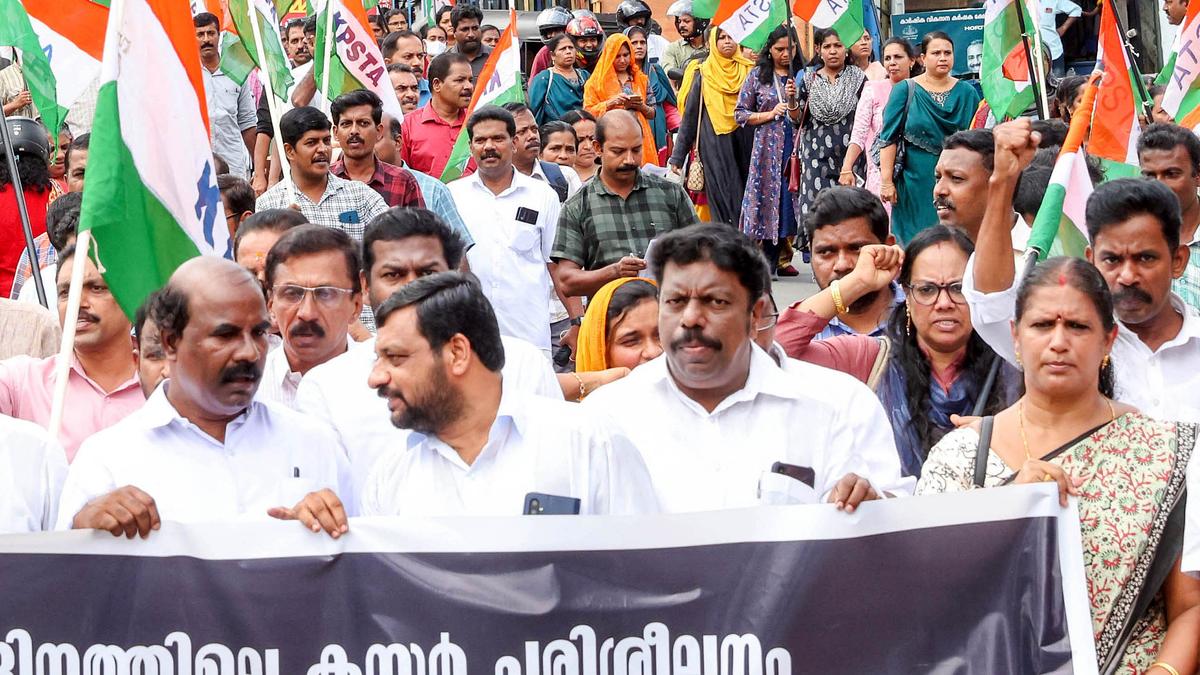
Academic calendar stand-off continues
The Hindu
The stand-off between teachers’ organisations and the General Education department over the academic calendar continued with the organisations boycotting the teachers’ cluster on Saturday.
The stand-off between teachers’ organisations and the General Education department over the academic calendar continued with the organisations boycotting the teachers’ cluster on Saturday.
The boycott was successful in all 14 districts, a joint forum of teachers said in a statement.
Marches were organised to the offices of deputy directors of education in all district centres by the Kerala Pradesh School Teachers’ Association (KPSTA), one of the organisations in the joint forum.
The marches were only a token protest. Unless the government withdrew the academic calendar that had been published “unilaterally” with the working days increased in the academic year to 220, the agitation would be intensified, the joint forum said.
Nearly 80% of the teachers scheduled to take part in the cluster meeting boycotted it, it alleged.
The National Teachers’ Union also claimed that the boycott was a success. Teachers’ attendance in a majority of cluster training centres in the State was below 30%. In some centres, it was only in name, the NTU said.
The boycott was held despite pressures from the General Education department and threats from teachers’ organisations affiliated to the government, it said.

In a breathtaking display of musical prowess, the Singspirations, a Tiruchi-based choir group, in collaboration with the Glauben Ensemble and the Genesis Chamber Orchestra, presented a sublime performance of Wolfgang Amadeus Mozart’s Requiem in D minor, K. 626, in its entirety, mesmerising audiences.












